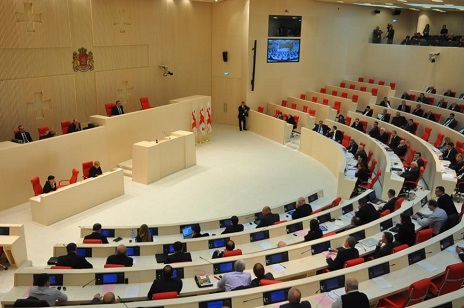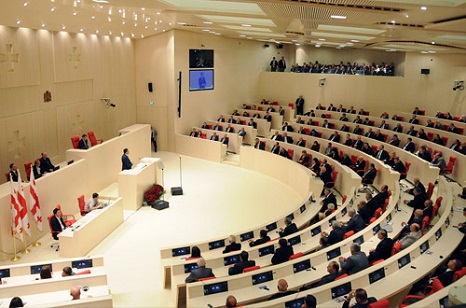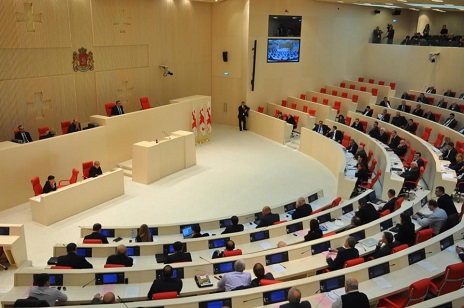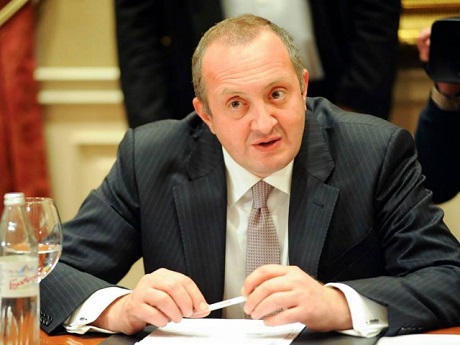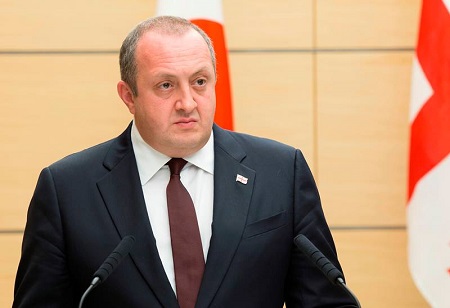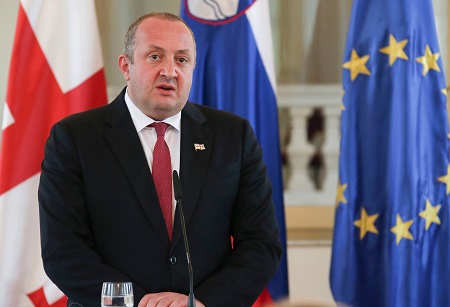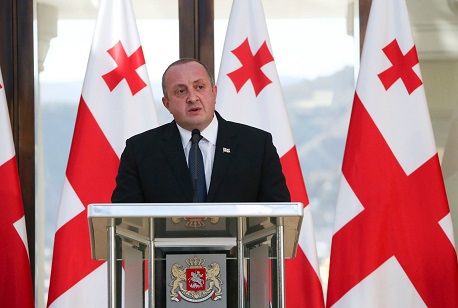President vetoes delaying adoption of surveillance bill
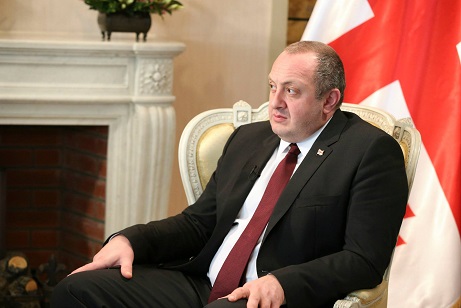
Georgia’s President Giorgi Margvelashvili has publically announced his disappointment in the delaying of adopting changes to the country’s surveillance law.
President Margvelashvili vetoed the amendments to the bill on electronic communication as he did not agree with Parliament’s decision to extend the adoption of the bill that would tackle security agencies’ unrestricted capability of direct access to telecommunications service providers’ networks, from November 1 to February 28, 2015.
"It is my decision to veto the bill on electronic communications. This decision is caused by a number of reasons. Initially there is a strong consensus in society that there must be a defined position on this issue and we have to move to a democratic functioning,” Margvelashvili said in a special briefing at noon today.
"I was born in the Soviet Union where I knew that the KGB had been secretly listening to us. Then I lived in post-Soviet Georgia where [ex-president Mikheil] Saakashvili’s regime made illegal surveillance as the symbol of strengthening the state and then all of us delivered a verdict to this regime.”
"This means that two years after [the 2012 parliamentary election where ex-ruling party UNM was defeated], on which the whole society has already agreed and there is a consensus we have to make an issue into law,” Margvelashvili said.
In his small speech the Georgian President welcomed civil society’s engagement in the process of updating the country’s surveillance laws. Non-governmental organisations (NGOs) believed the Interior Ministry should only have limited access to telecommunication companies’ server infrastructure.
NGOs had also called on the President to veto the bill.
Meanwhile, the executive director of Transparency International Georgia Eka Gigauri said after Margvelashvili’s veto that the President had proved that Georgia’s choice was a "democratic system of governance.”
Will Parliament override the veto?
Georgia’s Parliament will require the votes of at least 76 Members of Parliament (MPs) to override the veto.
President Margvelashvili believed Parliament, which passed a motion on Tuesday with 65 votes in favour to 31 against to extend the deadline, would consider his decision.
"I urge Parliament to adopt this law as soon as possible. The main issue is to restore confidence between the state, the executive body and society. Any criminal issue is only overcome by the full involvement of society and trust. We have to involve the society in an active dialogue and all the problems will be solved only by this way. We have to restore trust and the politicians have to make the first step. These are my arguments for [deciding] to veto the bill,” Margvelashvili said.
The Georgian officials sent a note to Parliament today where he explained the reasons for deciding to veto the amendments and said a reasonable period of time for deciding who will have the power to conduct lawful surveillance should be December 1, 2014 and not February 28, 2015.
Parliament Speaker Davit Usupashvili, who supported extending the deadline to February next year, said after the President’s veto that the issue was whether the bill would be delayed for a month or for four months. At yesterday’s Parliament meeting MPs could not reach a consensus on the amendments and it was agreed to postpone adoption of the new bill.
"Parliament has to debate the notes of the President and later to vote on [Margvelashvili’s] notes. If the President’s notes are not adopted by lawmakers, then they will vote on the initial version of the bill. If it is approved by at least 76 lawmakers, the veto will be overridden,” Usupashvili said at a Bureau meeting today.
Debating on who will have ‘key’ or direct access to the surveillance
Georgian lawmakers are hotly debating who will have ‘key’ or direct access to the surveillance.
One version of the draft law, proposed by non-governmental organisations (NGOs), foresaw the Interior Ministry only having limited access to telecommunication companies’ server infrastructure.
In this version, law enforcement agencies could only carry out surveillance and obtain requested data from telecommunications service providers only after they obtained a court order that authorised eavesdropping.
This meant that the key to surveillance would be in the hands of telecommunication companies and the court. NGOs believed this would deter authorities from conducting illegal surveillance.
The Government strongly disagreed with this proposal and argued the key should be in the hands of the Interior Ministry. The Government said it should not be necessary to notify telecommunication operators before surveillance took place, as it would increase the risk of leaking sensitive information and undermining operative activities of the law enforcement agencies.
 Tweet
Tweet  Share
Share
